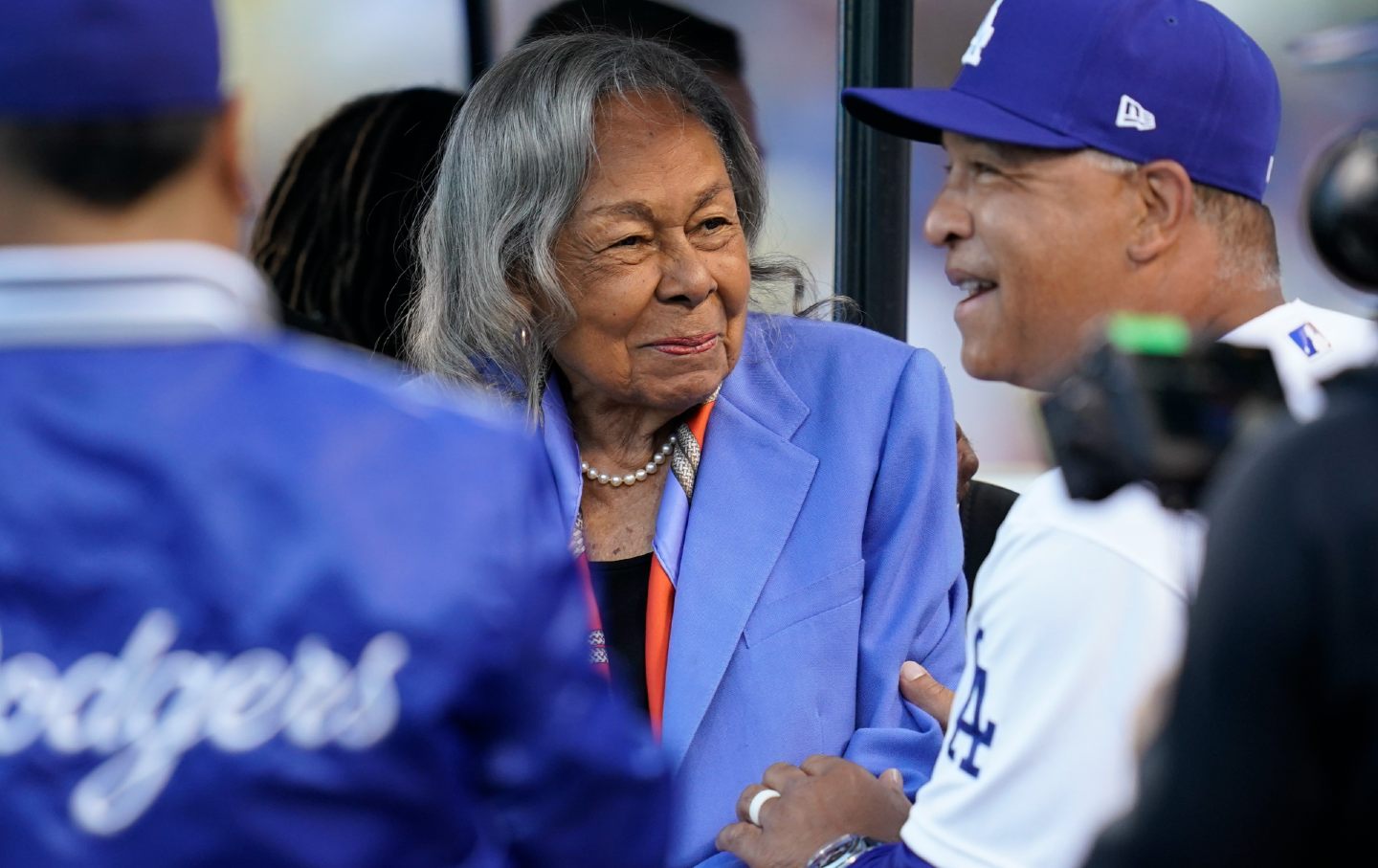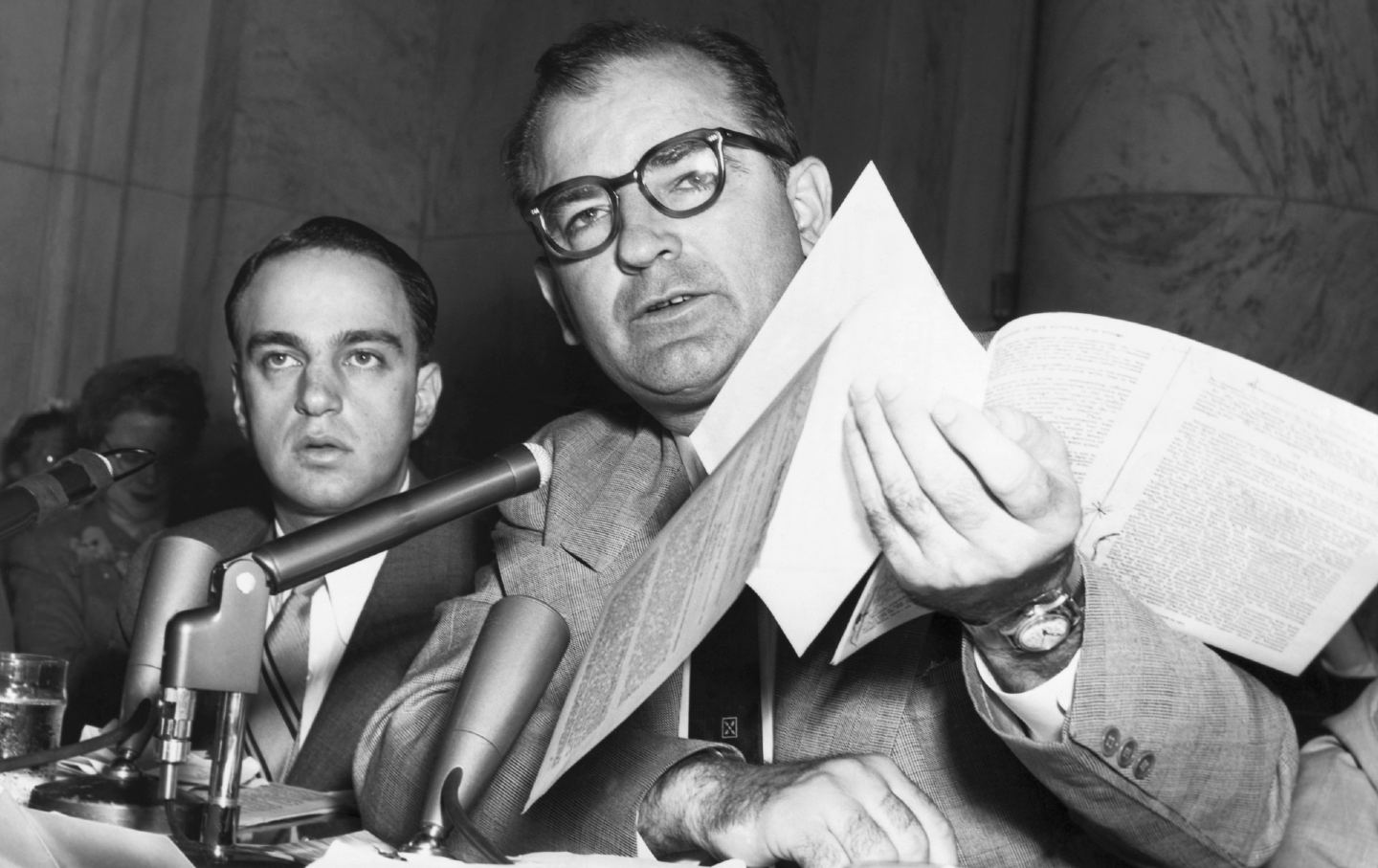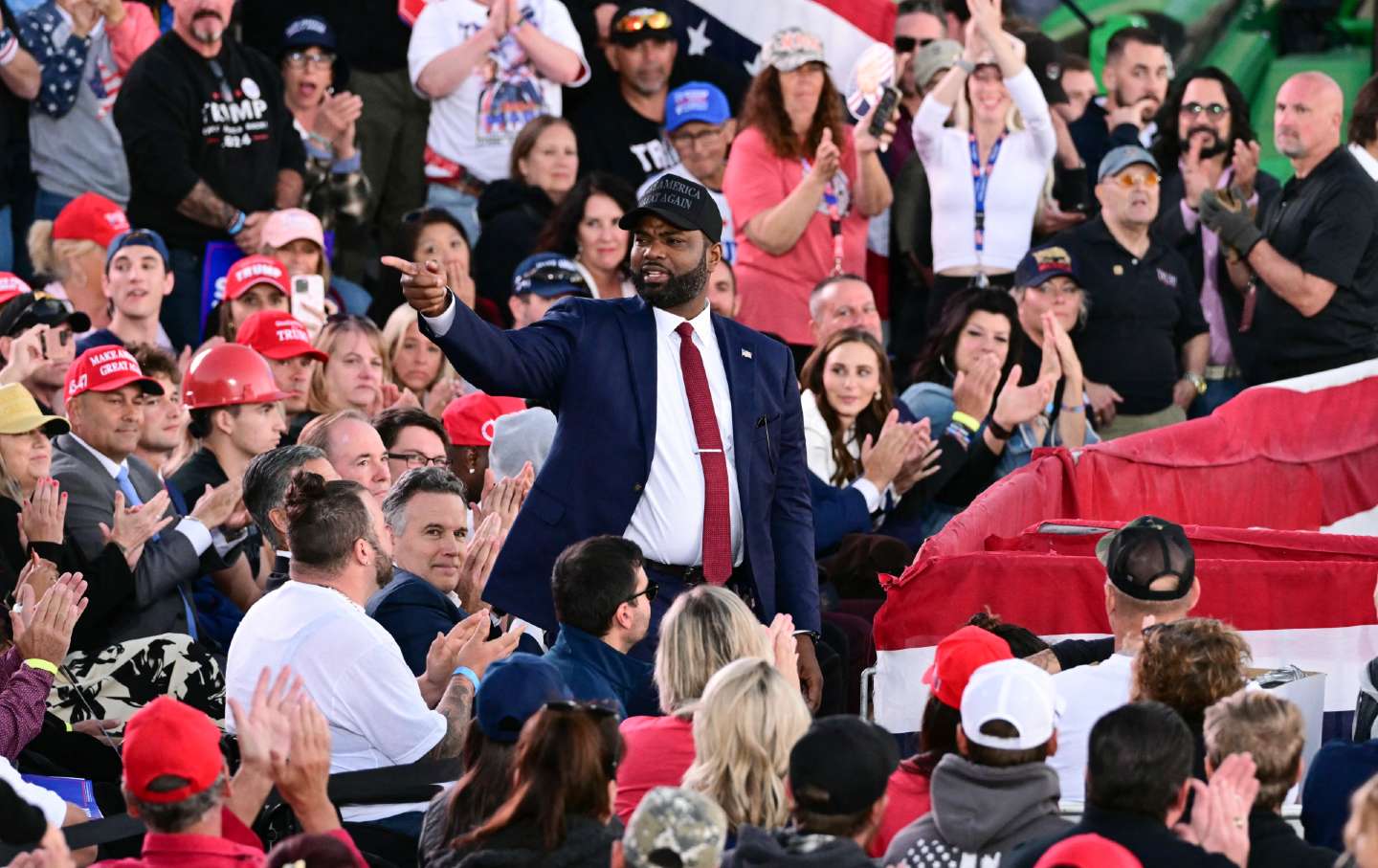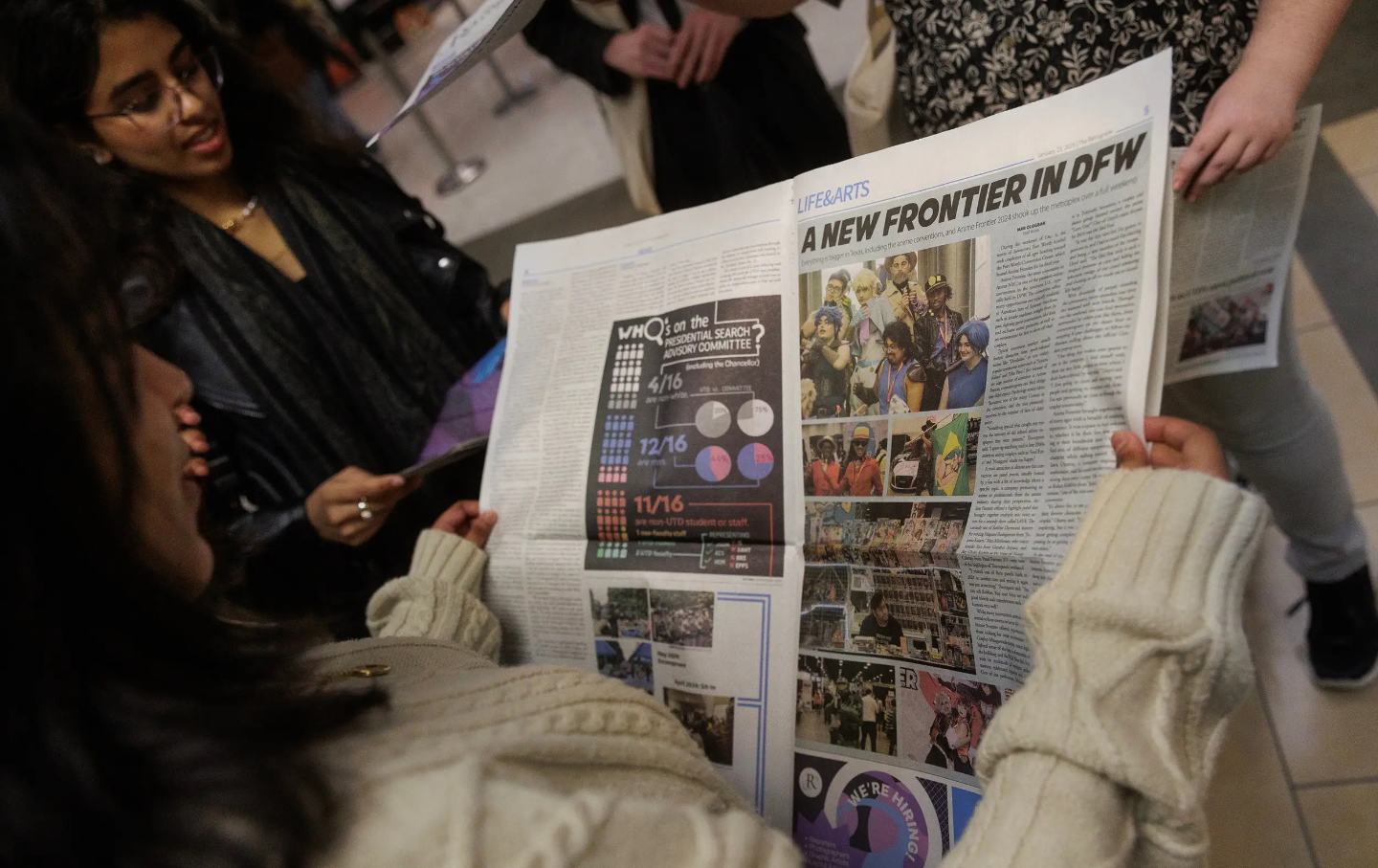With Kamala Harris and Usha Vance, Indian Americans Are Enjoying a Moment in the Spotlight
Yet as both JD Vance and Kamala Harris struggle to introduce their South Asian families to the wider culture, America’s “Passage to India” remains beset by racism and backlash.

The completion in 1869 of the Suez Canal, one of the great engineering feats in human history, filled Walt Whitman with wonder not only at the scientific accomplishment, but also the cultural and spiritual possibilities that he saw the canal opening up. For Whitman, the canal presaged not just more colonial trade but something more hopeful: the birth of a new global culture that would bring the Americas and Europe closer to Africa and Asia for a spiritual exchange among equals, one that would also deepen personal connections between the peoples of the world.
Whitman gave expression to these hopes in his poem “A Passage to India” (1871), where the great rhapsodist of democracy foresaw
The earth to be spann’d, connected by network,
The races, neighbors, to marry and be given in marriage,
The oceans to be cross’d, the distant brought near,
The lands to be welded together.
Was Whitman being hopelessly utopian? The globalization that he intuited has been characterized more often by imperialism and xenophobia than by the bringing together of the human family.
Yet in the 2024 election campaign, we can find evidence that Whitman’s imagined passage to India is coming true. Kamala Harris is half-Indian and half-Black: Her mother, Shyamala Gopalan, a biomedical scientist, was born in Chennai (formerly Madras), India, in 1938; her father, Donald Harris, an economist, was born in Brown’s Town, Jamaica, that same year. Donald Trump’s running mate, JD Vance, is married to Usha Chilukuri Vance, whose parents emigrated to the United States from Andhra Pradesh, India, in the late 1970s.
In introducing her husband at the Republican National Convention, Usha Vance winningly spoke of how, when she first dated Vance, he “adapted to my vegetarian diet and learned to cook food from my mother, Indian food. Before I knew it, he’d become an integral part of my family.” On other occasions, though, Usha has been more cagey about her background. She is a practicing Hindu, and her wedding with Vance featured both Christian and Hindu rituals. The same inclusiveness could be seen elsewhere at the RNC, when Trump supporter Harmeet Dhillon sang a Sikh prayer in Punjabi.
As I noted in a cover story for The Nation in February, Indian Americans—who have often been marginalized in and at times even excluded from the United States on racist grounds—are now surging to public prominence. Aside from Harris and Usha Vance, other high-profile Indian Americans in politics include the entrepreneur turned presidential hopeful Vivek Ramaswamy, former South Carolina governor Nikki Haley, and Pramila Jayapal, head of the Congressional Progressive Caucus. Beyond politics, Indian Americans have become increasingly visible in journalism, literature, the academy, and big business. They are now arguably the most successful ethnic group in America.
But the rise of Indian Americans isn’t a story of unalloyed success. Racism and backlash are part of the story, emboldened by JD Vance’s running mate, Donald Trump.
The white nationalist Nick Fuentes, who gained prominence after dining with Trump at Mar-a-Lago in November 2022, condemned both Dhillon’s prayer and Vance’s marriage to Usha. Denouncing the Vance family, Fuentes said, “Do we really expect that the guy who has an Indian wife and named their kid Vivek is going to support white identity?”
JD Vance had already failed an earlier Fuentes test. The New York Times reports that Vance earned Trump’s trust and stayed on the short list to be his running mate when he kept quiet about Trump’s meeting with Fuentes (unlike other Republicans, who expressed displeasure).
In an interview with Megyn Kelly, Vance gave a less than stirring defense of his family from Fuentes. Vance said, “Look, I love my wife so much. I love her because she’s who she is. Obviously, she’s not a white person, and we’ve been accused, attacked by some white supremacists over that. But I just… I love Usha.” Even if we make allowances for the fact that Vance is an awkward speaker, it’s hard not to notice that he isn’t really denouncing racism here. The words “obviously” and “but” sound odd. The implication is that Usha, although obviously not white, should be given special dispensation because of Vance’s love. This all has to be coupled with Vance’s nativist politics, which offers immigration restriction as a solution to problems such as the housing shortage.
On July 31, Trump, speaking to the National Association of Black Journalists, said that Harris “was always of Indian heritage and she was only promoting Indian heritage. I didn’t know she was Black until a number of years ago when she happened to turn Black. And now she wants to be known as Black. So I don’t know. Is she Indian or is she Black?”
This is a typical Trumpian travesty of a complex reality. Kamala Harris is both Indian and Black. Even after divorcing Donald Harris when Kamala was young, her mother was active in the Black community in Berkeley, which adopted the single mother and her two daughters. Harris’s Blackness is a matter of culture and upbringing as well biology. That’s a reality that is perhaps too complicated for the likes of Donald Trump—but it is the multicultural reality that millions of Americans live with. JD Vance himself embodies the complexity of the multicultural moment: a child of a working-class white family and a convert to Catholicism, married to a Hindu Brahman whose family has been prominent in India for centuries. But these are realities Vance can’t readily explain to the racists in his own party.
America’s passage to India remains tricky, and might yet require a genius on the level of Whitman to be fully comprehended by the American people.








